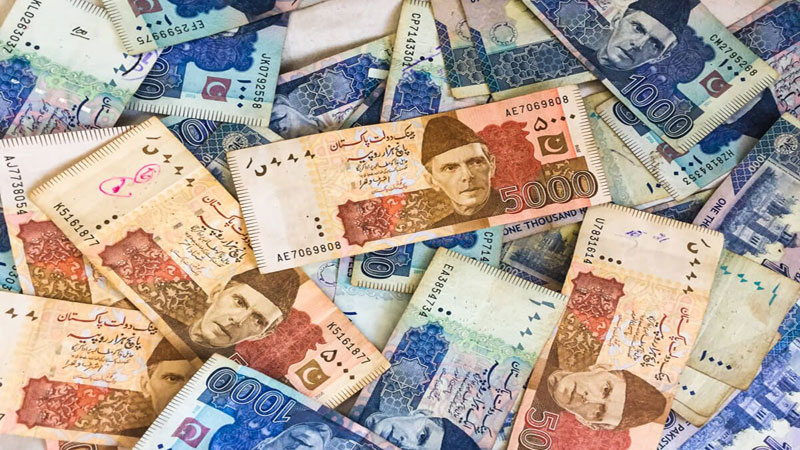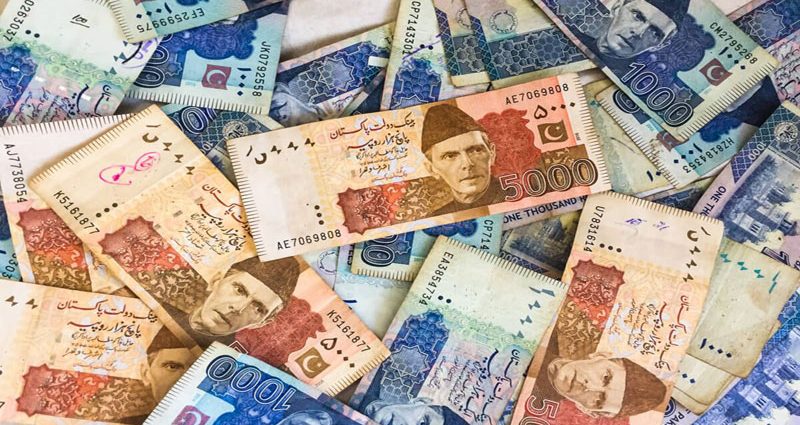
KARACHI ( Web News )
The State Bank of Pakistan released its third quarterly review of Payment Systems for the fiscal year 2022-23 Monday covering the period January to March 2023. Major highlights and comprehensive analysis on payments ecosystem is presented in the review.
Increasing collaboration between banks and fintech companies has provided efficient, accessible and user-friendly digital payments platform for customers, allowing greater number of customers to use digital channel for making payments. As of quarter-end Q3 of FY23, there were 9.3 million internet banking, 15.3 million mobile phone banking and 48.4 million branchless banking app users. In addition to this, holders of e-wallets (issued by Electronic Money Institutions – EMIs) reached to 1.6 million.
Customers using Raast for online Person-to-Person (P2P) funds transfer have increased to 29.2 million users from 25.8 million user in the previous quarter. P2P value and volume of transactions processed through Raast during the quarter grew by 92.3% and 55.6% reaching to 41.2 million transactions amounting to PKR 872.8 billion respectively. During the quarter Q3 of FY23, overall e-banking transactions increased by both volume (4.3%) and value (11.2%). Internet and Mobile Phone banking transactions volume also grew from 200.7 million to 220.5 million (9.9%) while value increased from PKR 9,167.6 billion to PKR 10,922.3 billion (19.1%). Number of transactions through Point-of-Sale (POS) also witnessed a growth with transactions volume increasing by 6.8% and value by 10.1%. ATMs transactions however remained close to the previous quarter by volume but by value, it increased by 6.0%. Average ticket size of transactions through POS was PKR 5,463/transaction while for ATM based transactions, it was PKR 15,429/transaction. Value of e-Commerce transactions processed by banks increased by 7.1% reaching to PKR 36.6 billion by end of quarter Q3 FY23.

By the end of Q3-FY23, there were 112,302 POS machines installed across the country while, there were 96,975 POS machines in the same quarter last year. Number of ATMs installed in the country also increased from 16,897 in Q3 FY22 to 17,678 in Q3 FY23.
Large Value Settlements processed through RTGS (PRISM), real-time gross settlement system of Pakistan, increased by 4.6% in volume and 13.9% in value as compared to previous quarter. Further, volume of paper based transactions declined from 95.5 million in Q2 FY23 to 94.3 million in Q3 FY23. However, its value increased by PKR 1,646.6 billion (3.0%) during the quarter.
Governor State Bank of Pakistan (SBP) Jameel Ahmad said that collaboration among regulators, financial institutions, industry players, and Shariah scholars is essential for bringing standardization of Islamic financial contracts and simplifying the processes. He was addressing the Inaugural International Conference on Islamic Capital Markets (ICM) jointly organized by Accounting and Auditing Organization for Islamic Financial Institutions (AAOIFI) and Securities and Exchange Commission of Pakistan (SECP). The theme of the conference this year was ‘ICM Development with Ecosystem Completion: Innovation, Growth, and Transformation’. Ahmad spoke at length on key issues and challenges in development of Islamic capital market. He was, however, convinced that the solutions are well within reach and hoped that the insights and knowledge exchanges during this conference will help in developing a roadmap for sustainable, diversified, and inclusive Islamic Capital Market in Pakistan.
The governor noted that Islamic finance as a global industry has crossed the USD 3 trillion mark and the Islamic capital markets account for around 31 percent share of this growing pie. He, however, noted that Islamic capital markets are in nascent stages of development in most jurisdictions. He attributed this to gaps in institutional, legal and regulatory frameworks, inefficient price discovery and lack of diversity in instruments and investors. The governor showed satisfaction that Islamic banking has grown into a systemically important sector in the country both in terms of assets base and current market share.Highlighting the challenges pertaining to the development of Islamic capital markets, particularly of Islamic Debt Market, the governor reminded that the conversion of public debt into Shariah compliant instruments remains the biggest challenge. The lack of adequate sovereign assets has remained a major impediment to regular issuance of asset-based Sukuk until recently. He informed the audience that the SBP has constituted a high-level working group to develop practical solutions on alternate Shariah compliant structures, especially Asset Light Sukuk Structures.
For building a robust Islamic corporate debt market, governor SBP emphasized the need for developing coordinated and sustained efforts on multiple fronts to provide an enabling tax, regulatory and policy environment. Noting the importance of retail investors, he stressed the need for investor education programs to compliment the efforts for strengthening the market infrastructure. He also emphasized the need to embrace Islamic fintech, digital finance, climate finance, and innovation with a futuristic view to achieve holistic and sustainable development of an inclusive Islamic capital market. He envisioned that Pakistan’s Islamic Capital market to be a fair, modern, efficient and globally competitive market, responsive to the needs of its stakeholders, and based on sound regulatory principles, which should provide the impetus for sustainable economic growth.

